Why people think UK plans to limit EU migration won't work
- Published
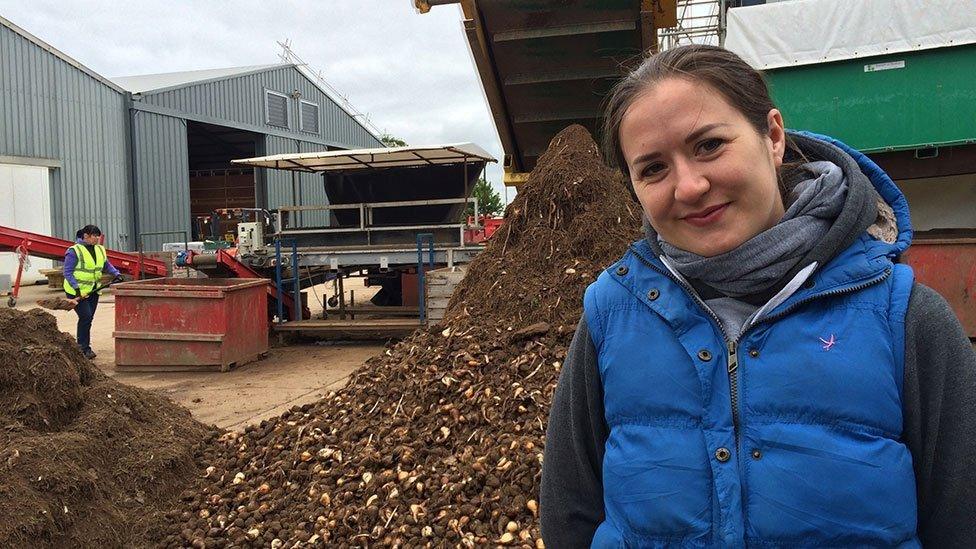
Latvian Olga Pekuskiena has worked in the UK for seven years
David Cameron has got a plan to reduce the number of European Union migrants coming to live in the UK.
Today he'll try and sell that plan to the rest of Europe's leaders at a summit in Brussels.
He is trying to renegotiate Britain's membership ahead of a public vote on whether the country should quit the EU.
The prime minister wants to limit the amount of welfare migrants can claim when they come to live in the UK.
But the key is he needs other European leaders to agree.
He's got a problem in that people on both sides of the argument say even if his plan gets approved, it won't work.
There are few places better for a range of views on EU migration than Lincolnshire.
For the last decade, thousands of eastern Europeans have come to live and work here due to the availability of unskilled work in farms and factories.
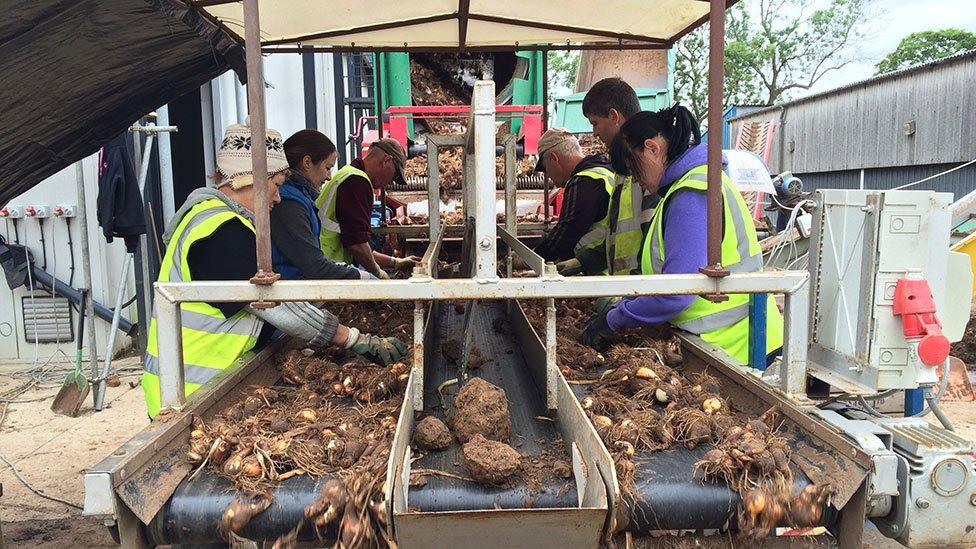
EU migrants working at a Lincolnshire farm
Jack Buck Farm specialises in growing daffodils and celeriac and employs hundreds of migrant workers on a temporary basis each year.
Olga Pekuskiena, a 32 year-old from Latvia, started here this week and is sifting through a pile of daffodil bulbs.
"I've been in the UK for 7 years. I came here to work and to earn more money for a better life.
"When I first came here I didn't know you could claim benefits, I just wanted a job."
She doesn't think the idea of cutting off some benefits to migrants will put them off the idea of being in the UK: "The last time I went home to Latvia everybody looked unhappy. People have no money, the shops are closed."
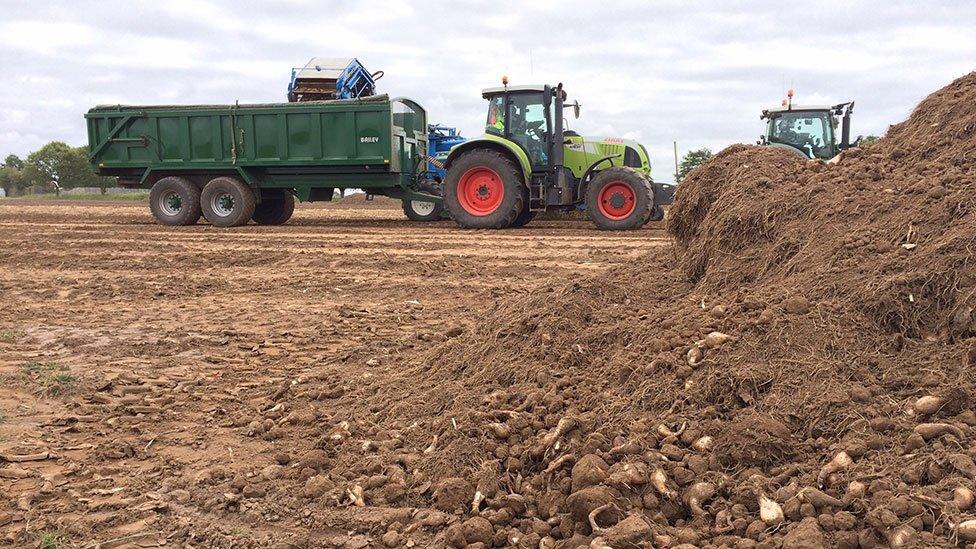
EU rules allow citizens to live and work freely in any of the 28 member countries.
As long as Britain remains in the EU it has to keep its borders open to other Europeans but David Cameron hopes more people will be put off heading here if it's made harder to access certain benefits.
The PM wants the UK to stay in the EU but is calling for the following changes:
- Stop EU migrants claiming tax credits and getting access to social housing for four years
- Stop migrants claiming child benefit for dependents living outside the UK
- Removing migrants from the UK after six months if they have not found work
Helping Olga with the pile of daffodil bulbs is another Latvian, Sergejs Podubnikovs.
He's been working on the farm for four years and said he didn't even know what benefits he was entitled to and wasn't going to bother finding out.
He shakes his head and explains in broken English that he's been here for five years and is only interested in earning money.
He says, "I have no kids. I just want the money. I came to live here for a short time but ended up staying."
Recent migration figures show that in 2014 641,000 people moved to the UK with 323,000 going the other way.
The number of Romanian and Bulgarians moving to the UK doubled to 46,000 in 2014.
Employment of non-British EU nationals in the UK in January to March 2015 was 283,000 higher than the previous year.
One man hoping the prime minister's plan fails is Robin Buck, manager of Jack Buck Farm.
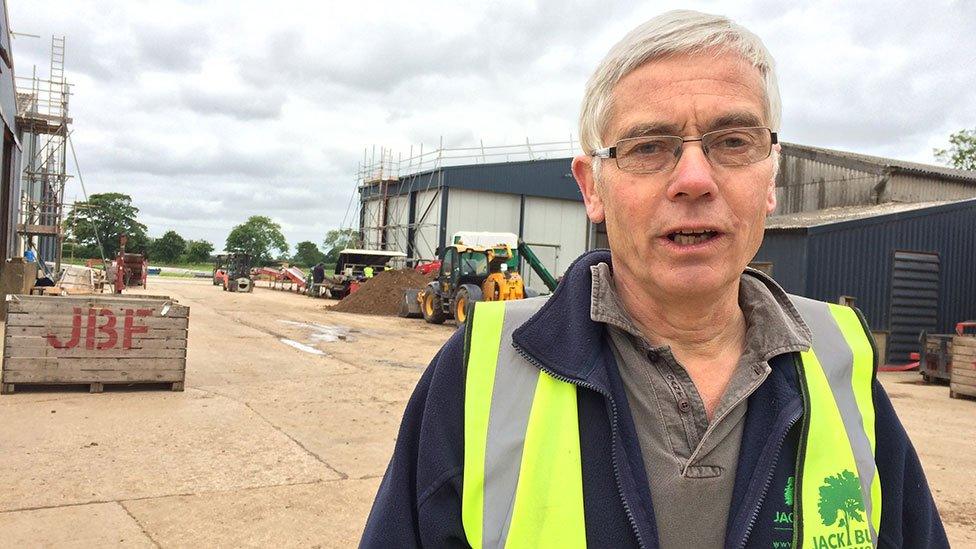
Robin Buck, manager of Jack Buck Farm in Lincolnshire, says his business relies on workers from eastern Europe
"It was becoming increasingly difficult to find English people willing to do the sort of work needed on the farm. We couldn't be where we are today if we weren't able to have those people come to us."
He says: "So much of the flowers and vegetables in the UK are grown in this part of the world and there's a structure that would almost collapse if we didn't have them."
He uses an agency to hire the workers and pays them the minimum wage topped up with overtime.
Asked if paying a higher salary might encourage more English workers onto the farm, he says: "I don't know if that is the case. "
He claims: "If I was employing English people, bluntly, you don't pay more than you have to anyway. There is a market place out there and we must produce our products for a price that the market place is willing to pay."
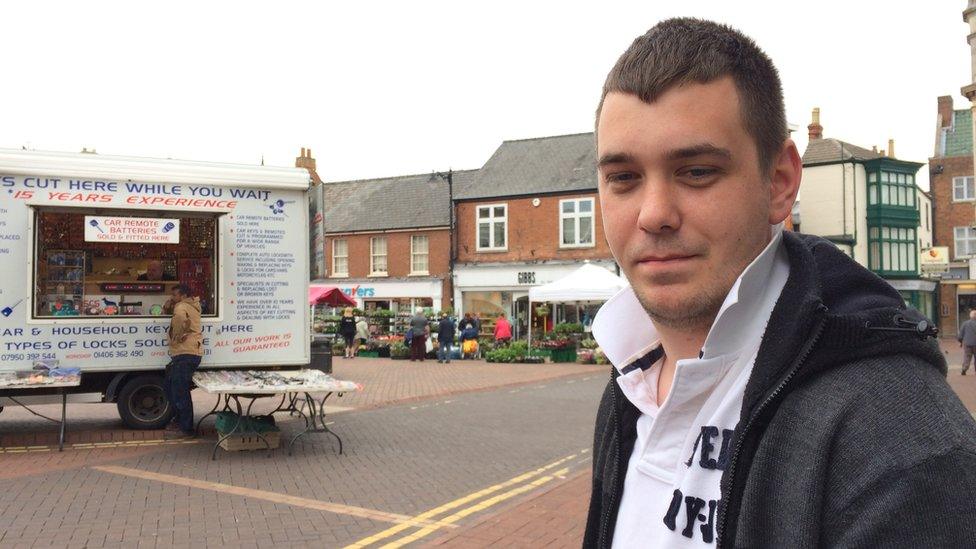
Peter Foster says the only way to prevent more eastern Europeans settling in the UK is for Britain to leave the EU
A few miles from the farm, in the centre of Spalding, evidence of the growth of eastern Europeans communities isn't hard to find. There's a Baltic supermarket, a Polish deli and an eastern European cafe.
Peter Foster is 26 and works in a factory alongside a number of migrants. "It's changed this area a lot. It seems rougher in this town now and people are speaking different languages."
He also doubts changes to the benefit rules will put anyone off coming to the UK. Instead, he has another solution: "The only thing that's going to put a stop to more people coming here is if we just leave the EU. I'll be voting for us to get out."
Follow @BBCNewsbeat, external on Twitter, BBCNewsbeat, external on Instagram and Radio1Newsbeat, external on YouTube